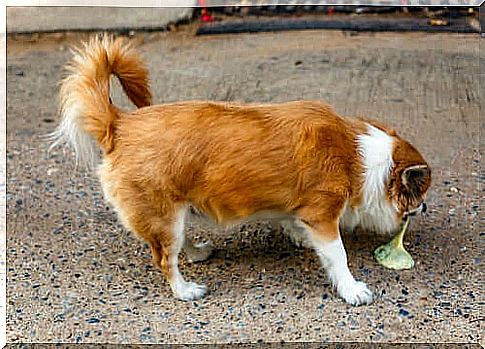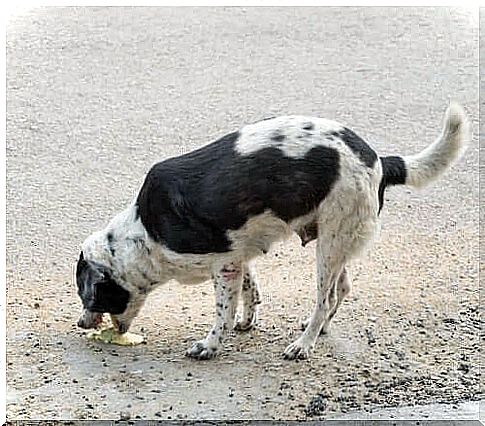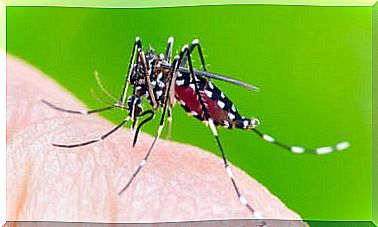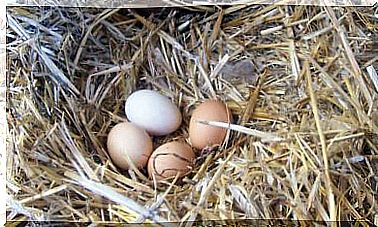Reasons For Vomiting In Puppies

Vomiting in puppies is an important clinical sign. This is because young animals are more prone to dehydration when their fluid balance is out of whack.
In a fully grown animal, it is common to wait a while and watch the symptoms progress, but vomiting should always be viewed as a potentially serious problem in puppies.
In our article, we’ll explain the possible causes of vomiting in puppies and tell you what treatment is needed.
Vomiting and regurgitation
Before we get into the causes of vomiting, we should distinguish between vomiting and regurgitation. When dogs vomit, they forcefully expel the contents of their stomach and upper small intestine. This could spill food, fluids, and waste on your carpet.
Symptoms of nausea, such as excessive salivation or a curved and tense stomach, usually appear before vomiting – just like in humans.
The rebuff is different, however. Rather than forcefully pushing the stomach contents out, gagging is a passive movement that expels undigested food and fluids.
In contrast to vomiting, the signs of regurgitation are difficulty breathing and coughing. To find out if your dog has gagged or vomited something, you should look closely at the vomit.
Strangled substances are not digested and often have a cylindrical shape that resembles that of the esophagus.
Your vet will need to differentiate between regurgitation and vomiting because both symptoms have very different causes and are treated differently.
What are the most common causes of vomiting in puppies?
Many cases of vomiting in puppies are the result of irritation to the digestive system from eating something that shouldn’t be on their diet.
This could be inedible objects, expired or irritating food, or maybe they just ate too much or too quickly.

Puppies are particularly prone to certain infections, such as distemper and parvovirus. This is especially true if you have not yet been vaccinated.
Internal parasites, heat stroke, medication, or a disease such as pancreatitis are also often responsible for vomiting in puppies.
Health problems that can provoke regurgitation in puppies
Regurgitation can occur in any breed, but some are more prone to it. They include the Wirehaired Fox Terrier, Miniature Schnauzer, Great Dane, German Shepherd Dog, Irish Setter, Labrador Retriever, Newfoundland Dog, and Chinese Shar Pei.
The regurgitation can occur for a variety of reasons. Among them:
- Congenital problems – that arise before birth – in the throat or esophagus.
- Disease-related problems with the throat such as cancer, foreign bodies, rabies, poisoning, or muscle problems.
- Disorders of the esophagus that can develop from an enlarged esophagus, tumor, cancer, or diaphragmatic hernia.
- Enlargement of the esophagus or problems with the autonomic nervous system.
If vomiting occurs repeatedly or in combination with diarrhea in puppies, or if the animal makes empty choking movements, if the vomit contains blood or other abnormal material, these are serious situations and require an immediate visit to the vet.
Treatment and prevention of vomiting in puppies
Vomiting can be a sign of a serious illness. Even if the underlying cause is not severe, vomiting, for whatever reason, can cause dehydration and other problems that can quickly kill a puppy.

If your puppy vomits several times in a day, vomits chronically, or has other symptoms such as diarrhea or lethargy, you should call your vet.
After the vet diagnoses the cause of the vomiting, they will come up with a treatment plan based on the cause and health of your dog. In severe cases it may be necessary to leave the animal in the veterinary clinic for inpatient treatment.
Mild diet
Your vet may recommend a mild diet for a few days to help your puppy recover faster. The feed is available for purchase, or you can cook white rice and boiled skinless chicken while your puppy is getting better.
Also, make sure your puppy is drinking enough water. If he has a more serious illness that is causing the vomiting, the vet will prescribe the appropriate medication for you.
Make sure he eats more slowly
If your puppy is healthy, but gulps down his food and then vomits shortly after eating, he is probably eating too quickly. In these cases, you should teach him to eat more slowly. The following tricks might help you with this:
- Feed the puppies in separate rooms so that there is no food envy in the first place.
- Place a large, inedible object in the bowl so the puppy has to make an effort to eat around it.
- Feed your puppies small portions several times a day.
When it comes to vomiting in puppies, you should always see your veterinarian first before giving your pet any medication. He will tell you how you should behave in each individual case.









